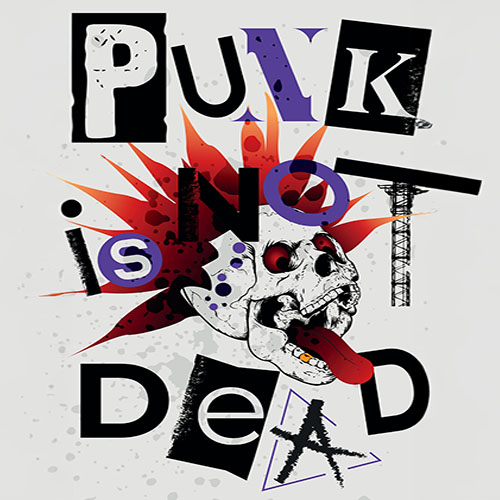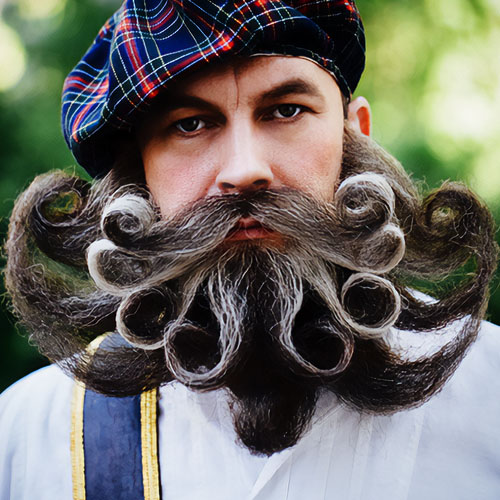These days, when a white kid from Detroit can top the hip-hop charts and be considered “legit,” another phenomenon is burgeoning: young people going online to explore the boundaries of race. This demonstrates not only the unique role the Net plays in contemporary youth culture but the allure of shedding one’s skin.
Hip-Hop & Black Like Me
“Phil Lacio — ignorant or racist?”
Whomp, there it is again. The race thing. Lacio can’t believe it. After all this time online, hanging, chilling, shooting the breeze, they gotta attack him as per usual. Some bonehead posts the “Phil Lacio — ignorant or racist?” question as a topic for a thread of discussion on Support Online Hip-Hop (www.sohh.com), one of the largest and most diverse rap communities on the Web. Two minutes later, the votes are coming in like a stoning. Lacio’s a racist bastard. A stiff. A no-good poseur.
But Lacio knows this isn’t true. This isn’t him. Because he doesn’t even exist. He’s just a name, a handle, a persona invented for the sake of killing time on the job. But after posting a few off-the-cuff incendiary comments, suddenly he’s an angry white dude, the Lacio haters presume. But no one knows what he looks like, whether he’s black, white, Latino. How can they judge a man with no face?
The strange thing about Net communities is that there are often only words to go by and not much else. Most of us have encountered or experimented with some sort of identity play online: fat man poses as Adonis, old woman poses as Britney, fat man poses as Britney, ad infinitum. But in this post-Eminem epoch of racial identity, in which a white kid from Detroit can top the hip-hop charts and be considered legit, another phenomenon is burgeoning: young people going online to explore or expunge the boundaries of race. Call it race bending. It demonstrates not only the unique role the Net plays in contemporary youth culture but the allure and consequences that come with shedding one’s skin.
By 10 P.M. the votes are in: 70 percent think Phil Lacio’s racist, 20 percent think he’s ignorant, and the remaining ten percent think he’s “just a plain idiot.”
And Lacio? He thinks they got it all wrong. “How can me listening to hip-hop make me wanna try and/or wanna be black, when in fact I am black?” he types.
Phil Lacio is white.
There’s a memorable New Yorker cartoon that shows a pooch sitting in front of a computer with the caption “On the Internet, no one knows you’re a dog.” No one knows you’re white either. Thing is, white kids going online and exploring black culture often get outted derogatorily as something else: wiggers.
The term became prevalent in the post-Vanilla Ice early 1990s when white kids were not just answering the call to hip-hop, they were inhabiting it — talking the talk, though not necessarily walking the walk. The hip-hop audience is thought to be 75 percent white. This mix is a cyclical trend that had its roots first with jazz in the 1940s, then with rock ‘n’ roll in the fifties. But unlike the “white negroes” of Norman Mailer’s famed 1959 essay — the “urban adventurers who drifted out at night looking for action with a black man’s code to fit their facts” — the latter-day explorers are often chastised for trying to, as Mailer put it, “absorb the existential synapses” of the black artists they admire.
Enter the Internet. Over the past few years, a host of sites aimed at what marketers call the “urban demographic” have been sprouting up across the Net. Russell Simmons, cofounder of Def Jam Records, thinks the expansion of the hip-hop universe, online and off, reflects the meaningful diversification of the fans. “Hip-hop started to connect people culturally in a way that race becomes a lot less issue than it had been before,” he says. “They get a real understanding from Beverly Hills what kids in Compton are thinking. Kids in trailers and kids in the projects are connected in a meaningful way, where they see that they have more commonalities than differences. That’s been very clear in the development of hip-hop culture.”
Culture critic Shelby Steele described what he called “this strong new sympathy between black and white alienation” in a recent editorial for the Wall Street Journal. “Too many of today’s youth experienced a faithlessness and tenuousness even in that all-important relationship with their parents,” he wrote. “And outside the home, institutions rarely offer the constancy, structure, high expectations, and personal values they once did. So here is another kind of alienation that also diminishes and generates a sense of helplessness, that sets up the need for compensation — for an imagined self that is bigger than life, unbound, and powerful. Here the suburban white kid, gawky and materially privileged, is oddly simpatico with the black-American experience.”
This simpatico experience has found a natural forum online, where race exists on a volunteer basis. As a result, flame wars ignite over those who are perceived to be posing, overtly or subtly, to be something they’re not. On hip-hop site OkayPlayer.com, a student named Brandee Tucker posted an essay about hip-hop fans who “act black.” “Listen to the sounds,” she wrote, “make the music, enjoy the beat, copy the artists and dances, whatever, but don’t take it as your own. Hip-hop and rap are not part of the Asian culture, Hispanic culture, or the white cultures.”
The essay touched off angry reactions from white fans online. “These are the types of posts that piss me off for real,” complained Emcee_Stove. “BLACK and WHITE is not a F**kin culture! WE as in BLACK and WHITE represent the AMERICAN culture. I’m white and I represent the F**K out of my skin color, and I’m not racist, whats race? … signing off, chrons got me trippin.”
“You one disillusioned muthaphucka,” came another response. “Under what rock are you living?”
This thread and many more like it are part of the lifeblood and history of Support Online Hip-Hop. SoHH.com was the brainchild of Felicia Palmer and Steve Samuel, two friends from the Bronx, New York, who wanted to bring their community to the Net. “We assumed it’d be mostly male, mostly black and Latino,” Palmer says. They were quickly surprised. On one of the first days back in 1997, they looked at the log-in records. “They were like, ‘We live in Missouri,’” Palmer recalls. “And we were like, ‘Missouri?’ Maybe there were black people in Missouri, but the probability was that that person was white.”
As Palmer and others observed, discerning someone’s race online was not always easy. “In online culture, the default race is a white person,” says Farai Chideya, author of The Color of Our Future, a book about young people’s perception of race. “But in the hip-hop community, the default race is a black, so you treat them as a black person.”
Adetunji Layade, a 31-year-old investment banker who participates in such online forums as “NYC Rebel,” doesn’t need to see a person’s skin color to figure out his or her race. “What’s in a black experience is a commonality. You can tell when someone is outside of that.”
But how easy is it really? The Georgia Institute of Technology is conducting a study called “The Turing Game” (www. cc.gatech.edu/elc/turing/), which aims to shed light on the complexities of online identity. No matter the results, hip-hop fans in particular are taking advantage of this opportunity to push the walls of these assumptions. The questions are: Why? To what end? And what, if anything, can these explorations contribute to the rest of culture, online and off?
Eddie “Nygma” Ihlenfeld, a white amateur rapper who’s active online, says that he is given a fairer shake when dropping lyrics like these on the Net than, say, in a club offline:
I feed the need to breed a team just to spit the chrome with
I want a QUEEN to split the throne with, to own sh*t.
I used to catch the metro with empty pockets, still RESPECT though.
Now i fill my whip with petro and rock dollars i never let go
but i aint livin lavishly, i hardly make AVERAGE WAGES.
My credit statements are damaged page after page from late payments,
and when i get home i dont have a sweetie to ask me how my day went.
I moved out a month ago, a project basement’s the replacement,
but im setting goals … aiming high and strive for success.
“Online, it’s all about your message,” Nygma says.
For Felicia Palmer, this notion is the fulfillment of a cultural ideal. “It’s what we all dreamed America would be,” she says, “where people would be able to have conversation and interact with each other without making judgments in advance with regard to race. I wouldn’t say it’s the American dream, but everyone can be cool without worrying about the dynamics of race and culture. It’s a new utopia where people can create their own environment with their own rules.”
Or, as rapper Chuck D put it, “The Internet is color-blind.” But, as Phil Lacio learned, the color remains.
“Wanna go in the ladies’ room?” Phil Lacio asks. It’s a lazy Saturday afternoon with not much else to do here in Chandler, Arizona, a sun-bleached suburb of Tempe. A golf cart full of tanned retirees rolls down the nearby greens. A bird lands on a cactus. Across the street, a white lawn jockey stands at attention by a neighbor’s front door.
If the locale seems tame for SoHH.com’s most notorious member, so is this moment’s destination: not an actual women’s restroom stall, but a popular discussion thread on SoHH.com called “The Ladies Room.” Lacio logs on here just about every day. Usually he does so from work, but at the moment he’s sitting in the computer room of the townhouse he shares with his brother. The walls are covered with Boston Red Sox posters. A New Kids on the Block CD sits on the desk. (“My brother’s,” Phil quickly points out, “not mine.”)
Lacio’s been having to explain himself quite a bit these days. Ever since the race riot erupted on SoHH.com, he’s been trying to articulate the differences between his controversial online persona and Mike Ryan, the actual maestro behind the keys. Though Lacio has no definite color or shape, Ryan is well-defined: a 32-year-old computer salesman with a shaved head, hoop earrings, white corduroy shorts, socks, and Converse sneakers.
His double life has been like an Eminem refrain, only for real. (“Will the real Phil Lacio please stand up, please stand up, please stand up?”) It all started with Ryan’s first (and, later, banned) online persona, Mikaveli the Czar. A passionate fan of hip-hop since the mid-1980s, Ryan came to the music by way of a hard life and a broken home; he found escape in the honest, emotional language of hip-hop.
At first, Ryan came to SoHH.com to learn the latest news and releases of his favorite artists. But what he found was something more intriguing: a seemingly endless network of like-minded enthusiasts, people who appreciated the wit of the artists’ wordplay, cared about the political message, and could tell the difference between Mos Def and De La Soul as easily as black from white.
For Ryan, this was a revelation. In his offline life, he was living in Arizona — the last state to hold out from honoring Martin Luther King Jr.’s birthday. In Ryan’s predominantly white high school, only a handful of kids listened to hip-hop, and the ones who did were often singled out. “My friends listened to the Beastie Boys because they were white,” he says, “but if I listened to anyone other than the Beasties, then I was trying to be black.” Friends would warn him against going to rap concerts in Phoenix for fear of him getting beat up. “And I’m like, ‘You just don’t know what it’s like,’ ” Ryan recalls. “ ‘You haven’t been there.’”
SoHH.com, it struck him, was a place filled with people who had been there. In many ways it became, he says, a second home, a place where “you’re not being judged by your appearance, just your mind. That can be a positive thing. Unfortunately, in this society you’re judged by your looks: pretty, fat, ugly, black, white” — judgments, he discovered, that eventually creep online.
One afternoon Ryan noticed a post by some guy who said white people on the site didn’t have the right to call themselves hip-hop fans; they were poseurs, phonies, wiggers. It was unleashed: the race thing. “I would assume that the majority of people that post on this Website are WHITE,” posted one member. “In addition, because this is a hip-hop Website, I am assuming that most of them are wiggers as well.”
“Rapper Chuck D says that ‘the internet is color-blind.’ But, as Phil Lacio learned, the color remains.”
“Not only did the crackers fuck up our minds so blacks could think backwards,” ranted another, “but they also raped our women and had them giving birth to unpure kids. this was all done to really reduce the black person. I know of cases where the master honky would rape a black woman, and when she’s about to give birth he kicks down the door and cuts her womb open with a knife. takes out the baby, and crushes its head with his boot on the floor. then leaves her bleeding there and expects her to be back in the cotton fields the following day.”
Ryan had had enough. “To me it doesn’t matter what someone looks like,” he says. “It’s what they have to say that matters, not their background.” So he decided to flip the script, post a little something that he thought might reveal the flamers’ hypocrisy. So he wrote this: “Why can’t Ray Charles read or write? Because he’s black.” And then the mob turned on him.
“Answer me this,” posted one woman later. “Would you make those SAME dam jokes if you were face to face with a black person? You’ll lie and answer yes, but everybody in here knows the answer is NO. So don’t mind me. Keep doin’ ya thang. But don’t look for any sympathy from others when you’re called a racist. I don’t give a fuck how much Tupac you listen to.”
Ryan was trying to be provocative, but he didn’t expect to get flamed. And he certainly didn’t expect to get banned. But when he tried to log on to the site later, his name and handle were denied. Though he was able to log back on under new handles, eventually he found that his computer server had been completely blocked from the site.
After calling SoHH.com for an explanation, he was told he could return under a new handle … but no more inflammatory remarks. Ryan renamed himself Phil Lacio after a character from an old John Belushi sketch. (If you don’t get the joke, say “Phil Lacio” a few times fast.)
By the time Lacio was on, SoHH.com had changed in hue. The once invisible fabric had been pulled back. On one hand, the dialogue was still overwhelmingly positive: young people coming together, talking about music, culture, life. Bitching about their jobs. Talking about relationships. But there was also something else, a small but vocal group of members who were putting others on the defensive.
“The word ‘cracker’ is constantly used on this site,” posted a woman, “which leads me to believe that whoever says it is prejudiced. what kills me is that the ones who spit out ‘wigger’ ‘cracker’ ‘honky’ or whatever are the ones who are bringing up how racist white America is but in turn are sounding prejudiced themselves. this is very hypocritical. … How can we as people embrace each other’s differences with all of the heated racism?”
The response came: “What gets me is this. white people call us names behind our backs all the time. Its a known fact, you white bitch. at least we’re open.”
“For your information, not that you deserve it,” the woman retorted, “I’m of Nigerian descent, not European.”
It didn’t take long for the storm to swirl around Phil Lacio, the one who some thought started it all. By now, Ryan had essentially outted himself as a white guy by posting his picture on a community member’s homepage. People also knew that he was also Mikaveli. Though he enjoyed the vast majority of his relationships online, there were plenty of SoHH members rallying against him.
After reading one commentary about the origin of the human race, Ryan responded: “If black people are the original men, then I am a descendant of black people. So why are you giving me crap for listening to hip-hop if in fact I am black according to what you are saying?”
For some critics, these kinds of discussions reflect the inherent limitations of racial-identity play online. Omar Wasow runs BlackPlanet.com, an online community that is predominantly black. Wasow suspects that thousands of the 2.6 million Black Planet members are whites posing as blacks. On one level, he thinks this ability to try out new skin is one of the allures of the Internet. But he bristles at people who think that by pretending to be black online, they’re somehow experiencing the culture on a meaningful level. “It’s important to distinguish between hanging out and dabbling in black culture, and living that experiment on a day-to-day basis,” he says. “The reality is people who live it 24 hours a day have no choice in whether to experiment.”
Even some whites agree. Billy Wimsatt, a white hip-hop fan who grew up in inner-city Chicago, became famous for a searing critique of wiggers he wrote for the hip-hop magazine The Source. Now Wimsatt leads youth organizations around the country. For him, the Net can perforate walls but not necessarily break them. “It’s ironic,” he says, “that probably for a lot of white hip-hop fans in their bedrooms, the Internet is as close as they’ve come to any kind of authentic multiracial community. So let it be a first step. The next step is to get out of your bubble and meet actual human beings who grew up on the other side of the race and class divide.”
I say you mind your phuckin biz
an keep my personal biz off this phuckin site
cuz these phucks show me nuthin but hate
so I aint lettin them past arm’s distance
get what Im sayin thats why I dont tell personal stuff going on with me
cuz when it comes down to it
these pricks arent my friends
their constant insistence that I am racist is prove of that.
It’s the end of the day, and Ryan is logging off of SoHH.com. There wasn’t much doing on the site, just the lingering trails of Phil Lacio’s old posts, like the one above. That screed was written after he came under attack for the usual fare, misrepresenting himself in some way or another.
Yeah, it bums him out on one level — the attacks, the vitriol. But he takes it in stride. He says he knows who he is. He’s not posing. He’s not looking for a life on the Net that he doesn’t have offline. And if there’s one thing he’s learned from his experience, it’s that, despite the differences, there was a glimpse of utopia after all.
“Everybody tries to point out what everyone has different instead of realizing what they do have in common,” he says, “that we all want the same things out of life …. When people go online now, maybe they can learn some things from each other, they can learn from their anger, their frustrations. Maybe they can say, ‘Okay, I can see where this guy was coming from.’”
The Hip-Hop concepts in this story from twenty years ago (as of this republish) barely scratches the surface of what has become a full-blown cultural appropriation war. And the myriad of sides almost never even agree on the playing field or the rules. Interestingly SohhNews still exists, but — without the slightest bit of evidence to back up this theory, mind you — it seems as though it got bought up by some conglomerate who now uses the platform as a repository of click-bait fodder. The ’Untold Story” of Kim Kardashian’s first husband hardly seems to have much of a Hip-Hop origin. Sad. It sounds like the place used to start some important conversations.
























